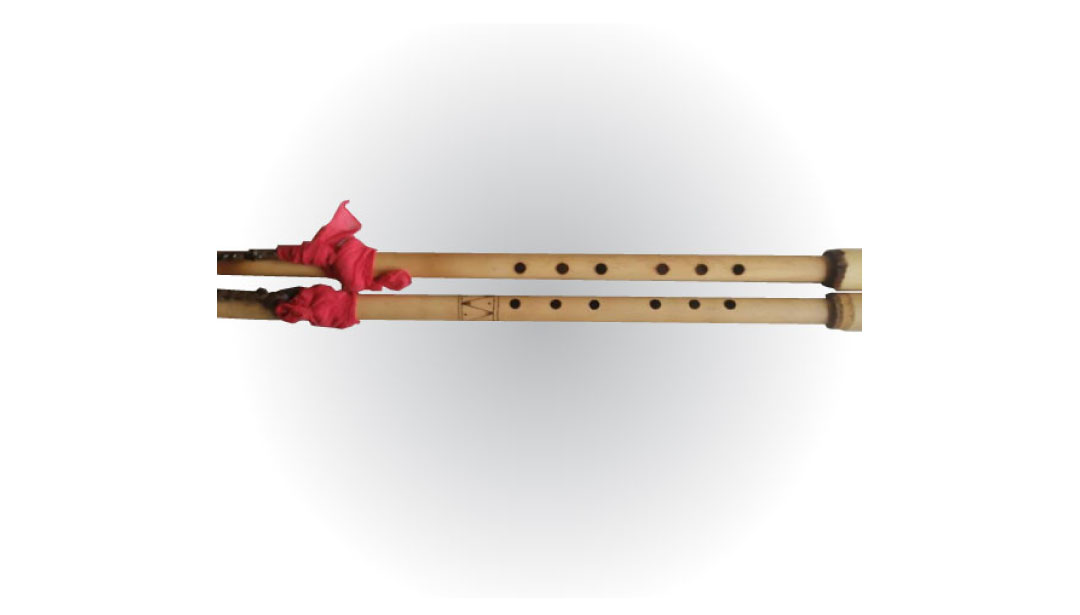The Kaili tribe has made music a part of community healing.
The Kaili tribe inhabits most of the areas in Central Sulawesi Province. They live in valleys between Mount Gawalise, Mount Nokilalaki Kulawi, and Mount Raranggona which are in Donggala and Sigi Regencies and Palu City.
The Balia traditional rituals in the Kaili Tribe are accompanied by the main traditional music called Lalove.
Lalove, which at first glance looks like a flute, is made of selected bamboo or rattan slats that grow on the highest mountain peaks, and it is a pentatonic wind instrument that has five major keys.
The Lalove musical instrument is not crafted haphazardly. Selected reeds are cut into nodes, and then air-dried. One of the nodes is not removed. This part of the node is slashed slightly, then wrapped with sharpened rattan, so that between the incision and the rattan winding there is a hole for air to enter from the blow. On the opposite side of the slashed part, six holes are punched with the same measurements. The three holes should be about 2 cm apart and between the groups of three holes should be about 5 cm apart.
To make the Lalove sound louder, a bigger reed is joined to the end, so that the Lalove's tip could be inserted into the reed. The reed used to increase the Lalove's sound is called a Solonga.
This musical instrument has a very important position in accompanying healing ritual dances. But lately this instrument has been widely used to accompany traditional creation dances.
Each stage of crafting the sacred Lalove requires a traditional ritual ceremony which could take a long time, even up to days. It's certainly different from the modern Lalove which only takes a short crafting time of about three hours.





